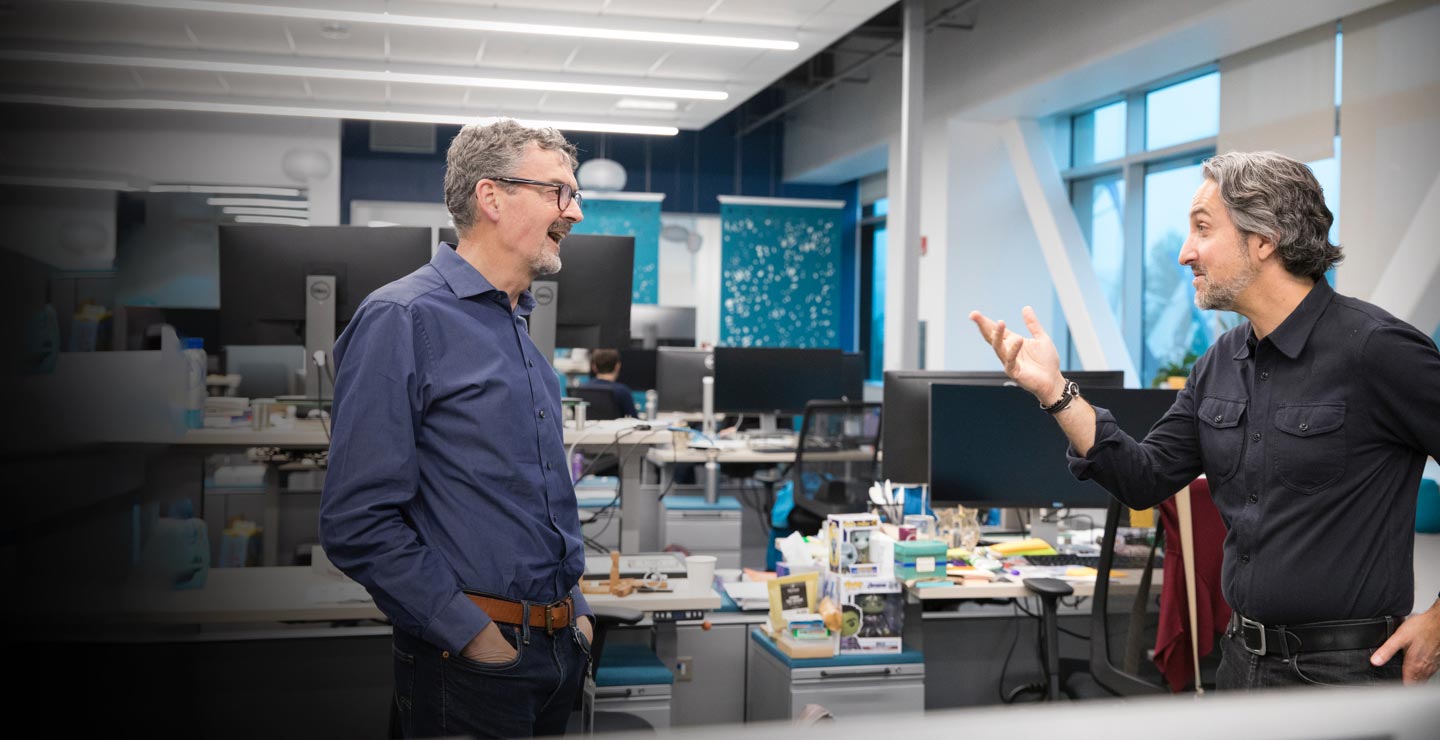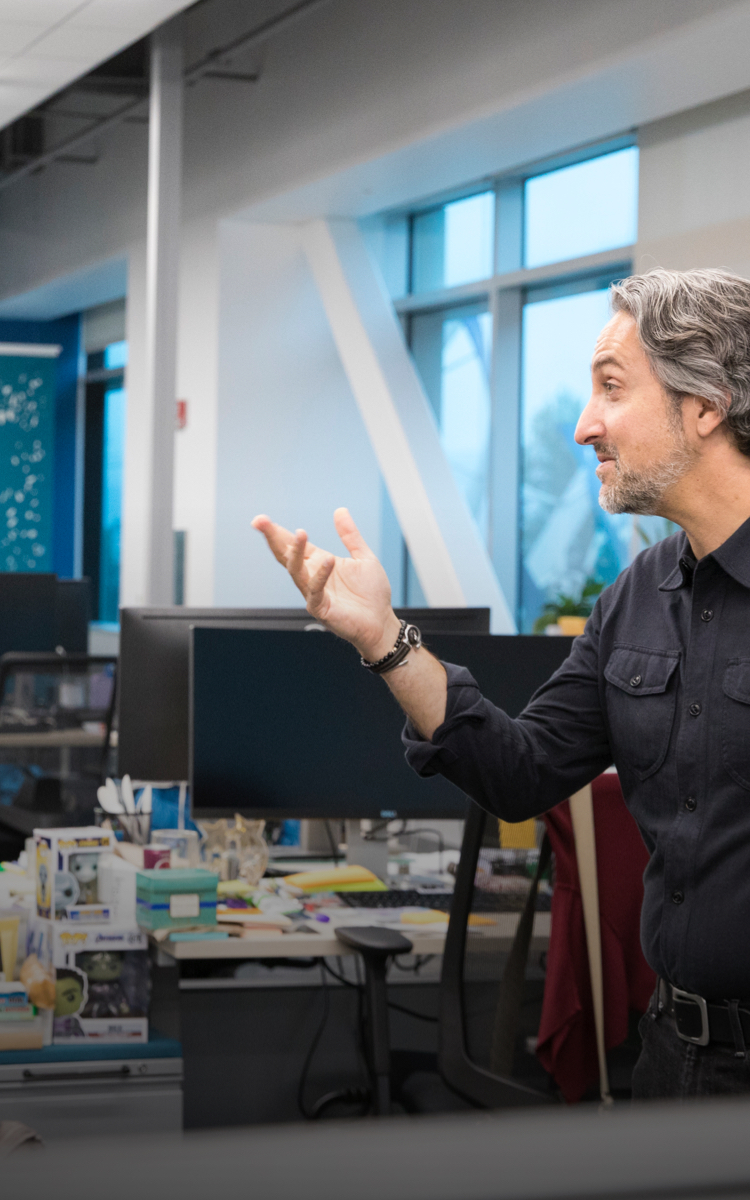Sort by
Sort by
Ahmed Sandakli

Ahmed Sandakli
Ahmed Sandakli is an Associate Scientist in Process Engineering, focused on implementing automation solutions for workflows across multiple functions.
Prior to joining insitro, Ahmed worked on optimizing, automating, and processing samples across several genomic assays at Verily Life Sciences. Before then, he was a part of the Genomics Platform at The Broad Institute, working on high-throughput SNP microarrays and NGS processing.
In his spare time, Ahmed enjoys hiking, weightlifting, yoga, and cooking.
Keywords
All Departments, High Throughput Biology,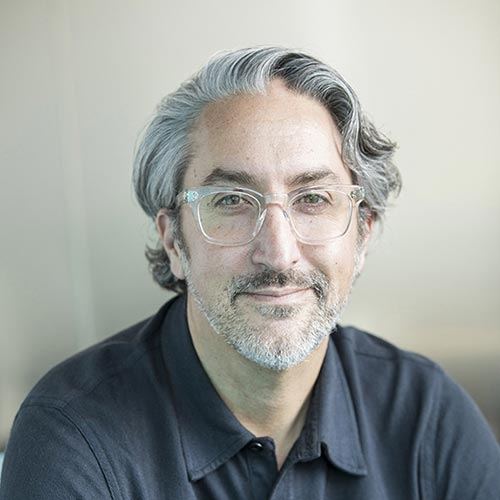
Ajamete “Aj” Kaykas, Chief Technology Officer
Chief Technology Officer


Ajamete “Aj” Kaykas, Chief Technology Officer
As Chief Technology Officer, Aj is responsible for producing high-quality data sets to use in for machine learning-based target and drug discovery. He leads insitro’s wet lab activities which consists of functional genomics, disease modeling, phenotyping, automation, and process engineering.
Ajamete has spent over 28 years in both industry and academia, working in the areas of proteomics, genomics, and stem cell biology. Before joining insitro, Aj led the early target discovery team at Novartis Institutes for Biomedical Research in the Neuroscience unit. His team efforts have led to the discovery of multiple new disease targets and the development of better predictive preclinical models. He conducted his postdoc with Dr. Randy Moon at the University of Washington/Howard Hughes Medical Institute on Wnt-signaling. While in Randy’s lab, he conducted one of the first ever genome-wide RNAi screens and studied the role of Wnt-signaling in human disease and stem cell biology. He did his graduate work at the University of Wisconsin-Madison in Dr. Bill Sugden’s lab where he studied virology, immunology, and oncology.
In his free time, Aj enjoys traveling, kayaking, sailing, biking, making whiskey and most of all his family.
Selected Publications:
DRUG-seq: A Miniaturized High-Throughput Transcriptome Profiling Platform for Drug Discovery. Ye C, Ho DJ, Neri M, Yang C, Kulkarni T, Randhawa R, Henault M, Mostacci N, Farmer P, Renner S, Ihry R, Mansur L, Gubser Keller C, McAllister G, Hild M, Jenkins J, and Kaykas A. In Press, Sept; 2018 Nat. Comm.
https://www.nature.com/articles/s41467-018-06500-xp53 inhibits CRISPR-Cas9 engineering in human pluripotent stem cells. Ihry RJ, Worringer KA, Salick MR, Frias E, Ho D, Theriault K, Kommineni S, Chen J, Sondey M, Ye C, Randhawa R, Kulkarni T, Yang Z, McAllister G, Russ C, Reece-Hoyes J, Forrester W, Hoffman GR, Dolmetsch R, Kaykas A. Nat Med. 2018 Jul;24(7):939-946.
https://www.nature.com/articles/s41591-018-0050-6A Single-Cell Roadmap of Lineage Bifurcation in Human ESC Models of Embryonic Brain Development. Yao Z, Mich JK, Ku S, Menon V, Krostag AR, Martinez RA, Furchtgott L, Mulholland H, Bort S, Fuqua MA, Gregor BW, Hodge RD, Jayabalu A, May RC, Melton S, Nelson AM, Ngo NK, Shapovalova NV, Shehata SI, Smith MW, Tait LJ, Thompson CL, Thomsen ER, Ye C, Glass IA, Kaykas A, Yao S, Phillips JW, Grimley JS, Levi BP, Wang Y, Ramanathan S. Cell Stem Cell. 2017 Jan 5;20(1)
https://www.cell.com/cell-stem-cell/fulltext/S1934-5909(16)30340-X?code=cell-siteGenetic Ablation of AXL Does Not Protect Human Neural Progenitor Cells and Cerebral Organoids from Zika Virus Infection. Wells MF, Salick MR, Wiskow O, Ho DJ, Worringer KA, Ihry RJ, Kommineni S, Bilican B, Klim JR, Hill EJ, Kane LT, Ye C, Kaykas A*, Eggan K.* Cell Stem Cell. 2016 Dec 1;19(6):703-708. *Co-corresponding author
https://www.cell.com/cell-stem-cell/fulltext/S1934-5909(16)30407-6Functional genomic analysis of the Wnt-wingless signaling pathway. DasGupta R*, Kaykas A*, Moon RT, Perrimon N. Science. 2005 May 6;308(5723):826-33. *Co-first authors
https://science.sciencemag.org/content/308/5723/826Keywords
All Departments, High Throughput Biology,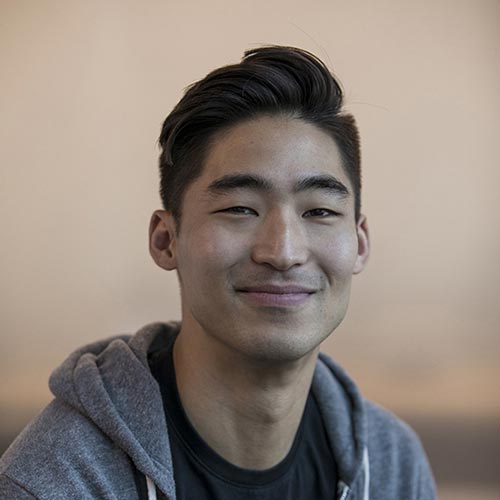
Albert Kim


Albert Kim
Albert utilizes different automation technologies to ensure quality data generation from many of insitro’s scientific processes. This includes integrating specific assays onto automation, onboarding tools for efficient execution, and maintaining an environment for seamless research operations.
After graduating with his B.S. in Biochemistry and Philosophy from Wisconsin-Madison he started at Abbott Laboratories as an Associate Scientist focusing on instrument and assay validation for their diagnostics platform. After working in a big company environment, he joined Transcriptic, where he helped w/ assay integration and automation.
In his free time, Albert enjoys watching the NBA and trying out different banana bread recipes.
Keywords
All Departments, High Throughput Biology,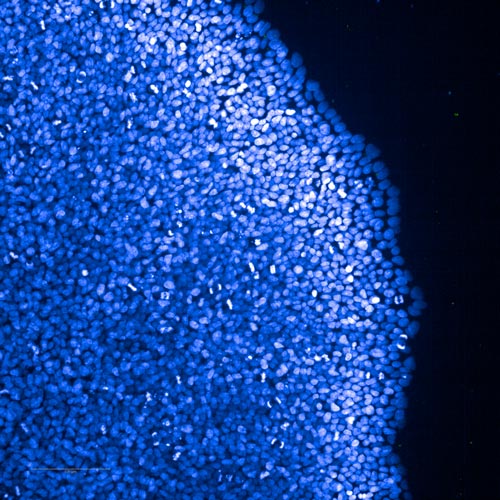
Alicia Cuevas


Alicia Cuevas
Alicia is a research associate focusing on developing and optimizing workflows to use on insitro’s automated systems.
Alicia was previously responsible for screening thousands of modified strains per week in a highly automated environment. She also spent time on a process quality management team where she worked with automation engineers, lab users, and software developers to build and test a paperless equipment management platform. Prior to her experience in process quality management, she worked with a small team creating one of the world’s largest induced pluripotent stem cell banks. The project was funded by a CIRM grant that resulted from the passing of proposition 71. Her focus was automating workflows on an integrated system and designing experiments focused on optimizing high throughput systems.
In her free time Alicia enjoys hiking, camping, reading, & museums.
Keywords
All Departments, High Throughput Biology,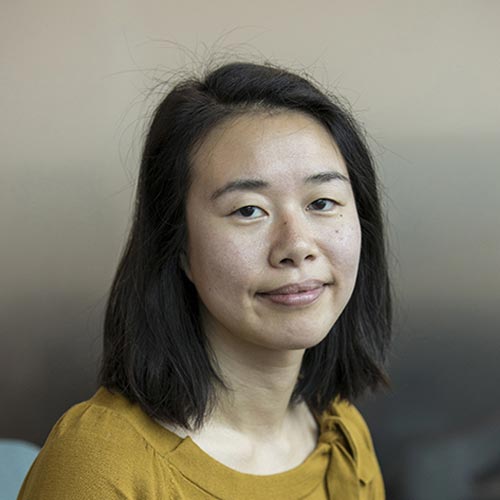
Alicia Lee


Alicia Lee
Alicia is Senior Research Associate in High-Throughput Biology and she is working on differentiating iPSCs into appropriate cell types for disease modeling to produce data sets for insitro’s machine learning platform.
Prior to joining insitro, Alicia was working on cell therapies for neurodegenerative diseases at Neurona Therapeutics. Before then she was at the Gladstone Institutes working on cellular models of neurodegenerative diseases. Alicia has a bioengineering background and obtained her B.S. and M. Eng. in Bioengineering from UCSD.
In her spare time, Alicia enjoys reading, hiking and traveling.
Keywords
All Departments, High Throughput Biology,Amanda Chau

Amanda Chau
Amanda is part of the Lab Operations team. She will support and help maintain the lab benches, restock and order lab supplies, and assist with implementing lab processes.
After obtaining her B.A. in Biology from San Francisco State University, Amanda worked at Genentech as a Quality Control Associate.
In her spare time, Amanda enjoys photography, exploring new foods with her family, and spending time with her friends.
Keywords
All Departments, High Throughput Biology,Amien Alazzeh

Amien Alazzeh
As a Lead Lab Operations Associate, Amien is a part of the Automation & Engineering team with focus on implementing and supporting automation solutions across multiple functions at insitro. Amien also helps maintain and implement operational excellence within insitro’s laboratories.
Prior to joining insitro, Amien spent the last few years as a Lab Manager, where he focused on streamlining processes, EH&S, supply chain management and implementing operational excellence.
Amien holds a Cell & Molecular Biology degree from San Francisco State University.
In his spare time, Amien enjoys going on road trips, weightlifting, and traveling.
Keywords
All Departments, High Throughput Biology,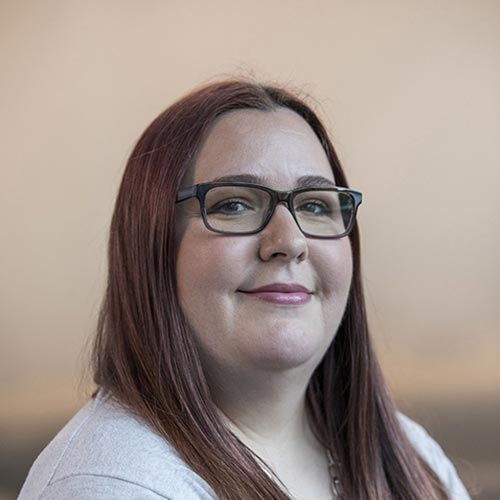
Anne Baldwin


Anne Baldwin
Anne is an automation engineer with experience developing methods and the tools needed to scale them. As a member of the Process Engineering team at Insitro, Anne works to enable the production of high quality biological data for downstream machine learning analysis and data science. She is frequently engaged in system development, process development, and developing the tools and methods that ensure the automated systems are producing the highest quality data.
Anne worked early in her career in GMP assay development for potency testing of antibody therapies, then scaled the assay development and testing through the use of automation. She transitioned into laboratory automation engineering full time when she became the lead system specialist in the nucleic acid sample management group in gRED at Genentech. There she managed many different integrated automated systems to transform, purify, store and deliver plasmids, proteins and other nucleic acid collections to the research organization. After that she transitioned to Synthego to lead their automation group to scale CRISPR oligo manufacturing and within 1 year built the integrated cell handling platforms to support nation scale cell line engineering services.
Anne holds a B.S. in Biological Sciences from the University of California, Davis.
Outside of work Anne enjoys long walks on the beach, sipping pina coladas and getting caught in the rain. She also enjoys cooking, baking, playing games and Dungeons and Dragons.
Keywords
All Departments, High Throughput Biology,
Ayla Nelson


Ayla Nelson
Ayla is working as an Associate Scientist ll or Research Associate, on disease models for neurological disorders using high-throughput screening. She is excited to be on a team of drug hunters.
She received her Bachelors of Science in Cell Biology from the University of California, Davis. There she researched signaling pathways in Arabidopsis to better understand integrated and external signals to determine the trade off between growth factors and secondary metabolites. Later she worked on high through-put antibody and TCR discovery platforms. A poly-clonal antibody platform to screen various targets across multiple epitopes. High-thoroughput screening of antigen-specific T cell receptors using immortalized TCR libraries, leading to novel TCR discovery (Nature Biotech).
When she is away from work, she enjoys hiking, tide pooling, kayaking, and baking.
Selected Publications:
Keywords
High Throughput Biology,Babacar Ndoye

Babacar Ndoye
Babacar Cedric Ndoye is a cell biologist with experience in the generation and applications of induced pluripotent stem cells. As an Associate Scientist in the Process Engineering team at Insitro, Babacar is combining his experience in cellular dynamics with automation processes for the development of multi-functional platforms.
Prior to joining Insitro Babacar received his BS in Biology from Stanford University, after which he spent several years at the Stanford Cardiovascular Institute working in iPSC research from patient consent to cardiomyocyte differentiation. He later joined Khloris Biosciences and helped set up and maintain a biobank, as well as develop novel therapeutics and assays for drug discovery.
When not in the lab, Babacar enjoys reading, cooking, and photography, as well as staying active by weight lifting, playing tennis, biking, and swimming.
Keywords
High Throughput Biology,
Blake Simmermon


Blake Simmermon
Blake is an associate scientist on the process engineering team at insitro. His focus is on supporting and developing automation solutions to provide high quality data for research and machine learning.
Prior to joining insitro, Blake worked in lab operations at Emerald Cloud Lab where he gained experience working with a wide breadth of analytical methods and instrumentation.
Blake received his B.S. in chemistry from Carnegie Mellon University with a focus on polymer science.
In his free time, Blake enjoys skiing and hiking with friends.
Keywords
All Departments, High Throughput Biology,
Bobby Leitmann


Bobby Leitmann
Bobby is a research associate that supports the development and integration of image-based assays to further insitro’s drug discovery.
Bobby got his B.S. in Biological Engineering at the University of Georgia (UGA) and did some hands on research focusing on stem cell therapies. He became a double Dawg when he got his M.S. in Engineering at UGA with a focus on Cell Manufacturing Research using high content imaging in the Mortensen lab.
In his free time Bobby likes to spend time with his partner and two crazy kitties, hike, dance, gardening and practice jiu jitsu.
Keywords
All Departments, High Throughput Biology,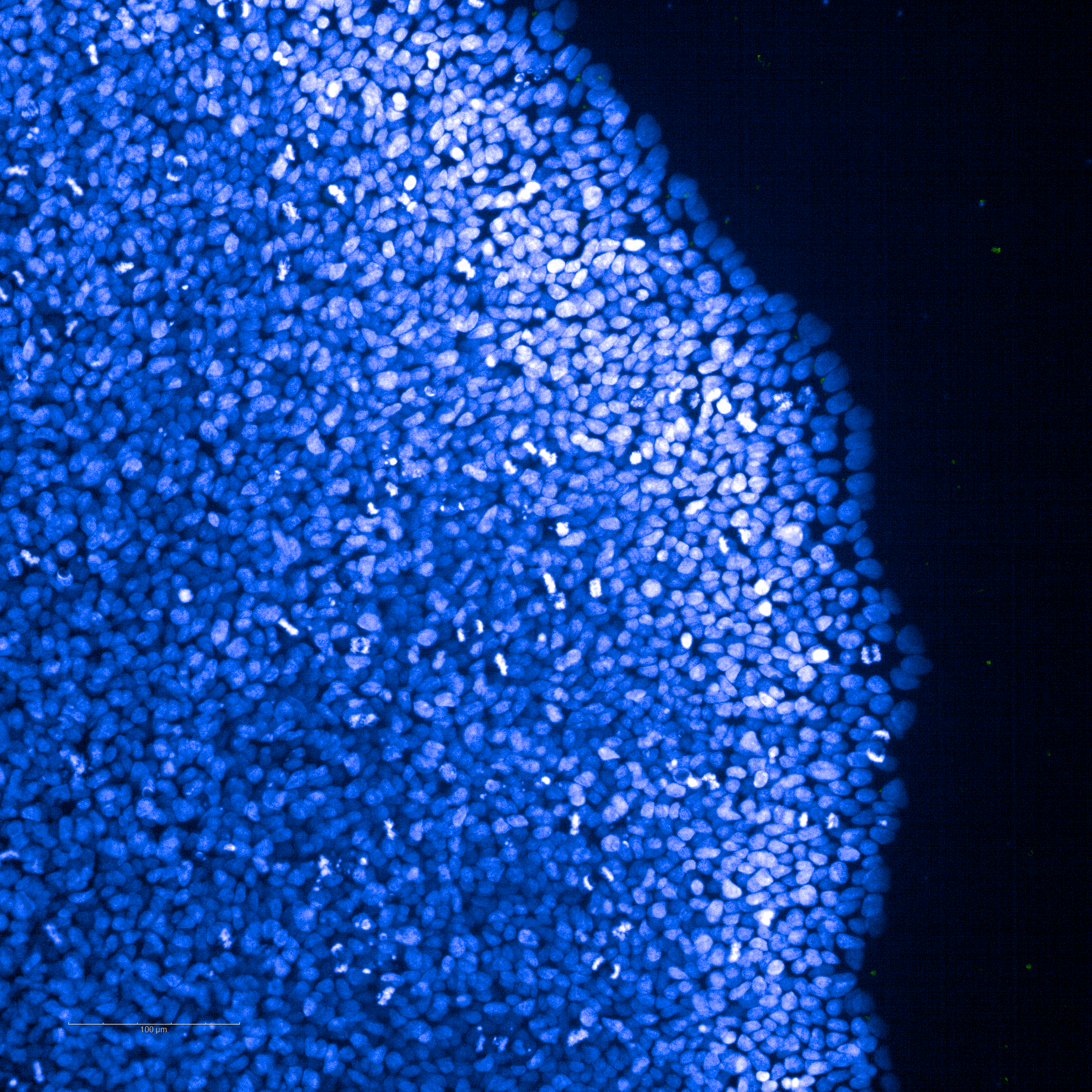
Brigham Hartley


Brigham Hartley
Brigham Jay Hartley is a Cell Engineer on the Functional Genomics team part of High Throughput Biology. His work utilizes start of the art gene and genome modification technologies to generate complex cellular models of disease and novel biological tools.
Following his PhD modeling cellular aspects of Parkinson’s disease using hIPSC-derived neurons at Monash University in Australia, Brigham completed a Post-Doc at Mount Sinai in New York functionalizing the genomics of neurodevelopmental disorders using hiPSCs, transcriptomics and screening technologies. Brigham was then recruited as a start-up member of Sana Biotechnology in Cambridge, MA where he led a team that developed novel engineered cellular-derived material. Brigham then gained a fascination and a love for the intersection of robotics and high throughput biology at the New York Stem Cell Foundation where he led the platforming of genome modification technologies, differentiation and phenotyping of hIPSC using liquid handling robotics.
When not in the lab, Brigham likes to shape the future of bonsai trees, watch F1 cars go round and round the track really fast and get out in nature on his mountain bike. He also enjoys thinking about what the cells are up to.
Keywords
All Departments, High Throughput Biology,Carlota Pereda

Carlota Pereda
Carlota is a research associate developing in vitro disease models for neurological disorders to generate large-scale data for machine learning-enabled drug discovery.
Carlota previously worked on scaling high-throughput 3D models for neurodegenerative disorders using automation. She led drug discovery screens on the platform and performed target identification experiments with hit drug candidates. She also has experience setting up lab operations from the ground up and managing grants. Carlota received her B.S. with Honors in Biotechnology at Brown University, with research in cardiac tissue engineering and her M.S. in Biomedical Engineering at Columbia University with mechanical engineering research in medical device design and fabrication.
In her spare time, Carlota likes to spend time helping entrepreneurs, gardening and dancing to any type of music.
Keywords
All Departments, High Throughput Biology,
Chengyun Lee


Chengyun Lee
As a Scientific Specialist, Chengyun contributes to iPSCs differentiation and disease modeling projects.
Chengyun received his B.S. in Clinical Laboratory Sciences and Medical Biotechnology at the National Taiwan University, Taiwan and participated in a number of research in the stem cell biology field. He pursued his M.S. in Stem Cell Biology at the University of Minnesota.
After graduation, Chengyun joined Ben Barres’s lab at Stanford University as a Life Science Research Professional.
Prior to joining insitro, Chengyun worked at Neucyte where he performed compound screening and dosing experiments and participated in iPS-based neurological platform upgrade program and drug discovery efforts.
In his spare time, Chengyun enjoys reading and listening to audiobooks.
Keywords
All Departments, High Throughput Biology,Chris Baker

Chris Baker
Chris has spent nearly two decades in research, mostly focused on infectious diseases, such as HIV. He began his career at the California Department of Public Health, looking at T cell responses to HIV in US and Ugandan patients. His PhD work was using SIV to model the consequences of HIV exposure on the development of the immune system, and later did postdoctoral work on the contributions of the immune system to preterm labor.
Prior to joining insitro, as Associate Director, Core Lab Operations, Chris worked as an immunologist and production cytometry lead at Verily Life Sciences, supporting the Immune Profiler Baseline, and various internal platforms across the company. Before that, Chris was the Technical Director for the Core Immunology Lab, developing, implementing, and executing immunology assays to support the research community at UCSF and various companies around the Bay Area. He also co-founded and taught the UCSF Flow Cytometry Training Program.
When he is not working, he loves spending time with his wife and kids, hiking, playing sports, and building in his woodworking shop.
Keywords
All Departments, High Throughput Biology,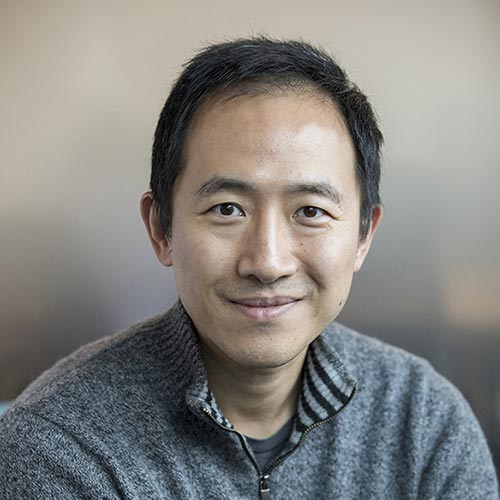
Ci Chu
Associate Director of Functional Genomics


Ci Chu
As the Director of Functional Genomics, Chu leads insitro’s genetic screening and phenotyping efforts.
Chu has over a decade of molecular phenotyping and profiling experiences in academia and industry. Before Insitro, Chu was the genomics tech lead for the Immune Profiler platform developed at Verily Life Sciences (an Alphabet company in healthcare). Verily and Gilead are employing this platform to understand inflammatory autoimmune diseases. During his postdoc, Chu set up a single cell RNAseq platform at Genome Institute of Singapore to map the human immune atlas. During his graduate training with Dr. Howard Chang at Stanford University, Chu invented an RNA-interactome analysis method, “ChIRP,” to study the mechanism of X-chromosome inactivation by the famous long noncoding RNA “Xist”, among many other projects, via genomics, imaging and protein mass spec assays.
In his spare time, Chu tests sneakers for Puma, and reads books to his two young kids.
Google scholar
View articlesKeywords
All Departments, High Throughput Biology,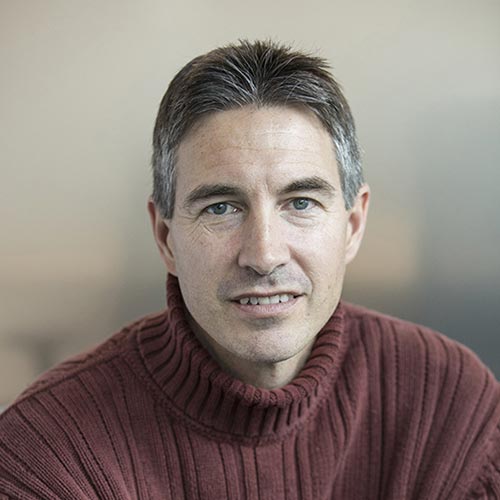
Craig Fredrickson


Craig Fredrickson
As Scientific Specialist at Insitro, Craig will be working with the Disease Modeling group to help develop robust, scalable and highly reproducible in vitro models of human disease. Craig will also focus on integrating these models into high throughput, automated platforms to eliminate variability and provide large, trustworthy data sets to the Machine Learning team.
After graduating from the University of California Santa Barbara, Craig has supported various research and development efforts in Neuroscience, Stem Cell and Cancer Biology. Throughout his career, Craig has acquired an extensive research experience from institutions such as the Neuroscience Institute, UC San Diego, California Stem Cell Inc., and Memorial Sloan Kettering Cancer Center. Craig hopes to use his experience and ideas to help advance the exciting programs at Insitro to the next level of drug discovery.
Craig enjoys an occasional escape to the wilderness for fishing, camping, exploring and basically just having fun with family. Favorite author: Bertrand Russell.
Keywords
All Departments, High Throughput Biology,Cynthia Hao

Cynthia Hao
Cynthia Hao is an Associate Scientist developing pooled screening and image analysis workflows to glean insight into complex disease phenotypes from insitro’s cell models. She is also building systems to collect and analyze high-quality microscopy data at scale.
Cynthia earned a B.S. in Bioengineering and an M.S. in Computer Science, both from Stanford University. She completed her honors thesis on pooled CRISPR screening methods for microscopy phenotypes in Professor Roger Kornberg’s lab, for which she optimized screening protocols, carried out high-throughput CRISPR screens, and implemented and parallelized a computational image analysis pipeline. During her time at Stanford, she also worked in various academic labs, on projects ranging from building a rationally designed cell to DNA synthesis in outer space.
In her free time, Cynthia enjoys trying new recipes, costume design sketching, and making music.
Keywords
All Departments, High Throughput Biology,
David Conegliano


David Conegliano
David is an automation engineer on the Process Engineering team at insitro. David collaborates with scientists and engineers to design, develop, and implement automation solutions for high-throughput biology protocols and workflows, enabling machine learning applications in biology.
David’s experience spans across both cell biology and engineering. He started as a research associate at the Wyss Institute at Harvard where he collaborated with scientists to design novel microfluidic cell-based models. He quickly transitioned to a startup as a scientist at Emulate where he developed dynamic, three dimensional in vitro cell models of the lung and liver. He worked on designing, characterizing, and testing these models with primary human cells for disease modeling and toxicology applications in collaboration with major pharmas. He later transitioned into the engineering discovery arm of Emulate where he led liquid handling automation for platform expansion.
David holds a B.S. in Biomedical Engineering from Boston University and M.S. in Bioengineering from the University of Pennsylvania.
In his free time, David enjoys exploring new hikes, trying new restaurants, and relaxing on the beach on a hot sunny day.
Keywords
High Throughput Biology,Divya Kanichar
Director, DEL

Divya Kanichar
As the Director of DNA-Encoded Libraries, Divya leads insitro’s DEL synthesis and screening programs in collaboration with her teammates.
Divya has seven years of experience in the construction and screening of evolvable DELs. Before joining insitro, Divya was a co-founder and COO of Haystack Sciences where she led R&D lab operations. She also constructed the equipment and devices required for synthesizing chemical libraries based on instructions encoded in DNA, and leading the synthesis of these programmed libraries. Her innovations have increased the speed and efficiency of construction of programmed, evolvable DELs.
Prior to Haystack, she worked at Impossible Foods building and screening DELs to discover ligands of interest in food science. In graduate school, Divya studied medicinal chemistry and discovered novel diazaborines with antibiotic properties with a particular focus in tuberculosis.
In her spare time Divya enjoys playing with her kids and dipping them in the Russian River.
Keywords
All Departments, High Throughput Biology,Elaine Higashi

Elaine Higashi
As a member of the Process Engineering team at insitro, Elaine is working to develop and scale high quality systems and processes to enable the production of high quality biological data for machine learning.
Elaine started her career as a Systems Engineer at Roche developing in vitro diagnostic instruments. At Roche, she was responsible for the design, integration, and lifecycle management of different complex systems. She later moved into the world of biotech startups at Synthego as an Automation Engineer, where she was involved in everything from system qualifications, new process development, to continuous improvement. Some of her projects included developing robust automated processes to enable new CRISPR oligo products and building an automated platform to allow for rapid iteration in scaling engineered cells. Elaine holds a B.S. and M.Eng in Biomedical Engineering from Cornell University with a minor in Music.
In her free time, Elaine enjoys traveling to new places, playing the violin, and building cardboard forts for her two cats.
Keywords
All Departments, High Throughput Biology,Eugeni Vaisberg
VP, Disease Model Systems & Arrayed Screening

Eugeni Vaisberg
Eugeni Vaisberg, Ph.D., is Vice President, Disease Model Systems and Arrayed Screening at insitro.
Eugeni is a drug discovery scientist and inventor with 30 years of experience working in academia and industry. Before joining Insitro, Eugeni was a Staff Scientist at Verily (formerly Google Life Sciences) where he led groups responsible for the development of cutting- edge cell biological technologies, drug delivery platforms, and the development of an extracellular vesicles-based diagnostic platform. In addition, Eugeni and his team collaborated with ML experts from Google to develop cutting-edge data driven platforms for stem stem cell differentiation and for high throughput image based screening.
Prior to joining Google[x] he worked as Principal Scientist, Therapeutic Innovation Unit at Amgen where he played a leading role in defining the approach and implementing key applications of stem cell biology for drug discovery.
Prior to Amgen Eugeni served as Director of Lead Discovery at iPierian where he was responsible for building one of the world’s first “disease in a dish” drug discovery platforms based on cellular reprogramming technology, advanced high throughput screens, and data analysis.
Before joining iPierian Eugeni worked at Cytokinetics where he was one of the founding scientists and held multiple positions of increasing responsibility. He established biochemistry and informatics departments and led development of a state of the art system for quantitative cell biological assays – Cytometrix™. This work transformed all stages of drug discovery at Cytokinetics and made the company one of the leaders in high content assays and screening.
Dr. Vaisberg is an inventor with over 25 patent applications and multiple scientific publications. He received his Ph.D. in Biochemistry from the Institute of Protein Research, USSR Academy of Sciences, Moscow, USSR.
In his free time he enjoys traveling, SCUBA diving, exploring microbrews, and photography.
Google scholar
View articlesKeywords
All Departments, High Throughput Biology,Flora Yi

Flora Yi
Flora is an Associate Scientist in the Functional Genomic team and she is working on building the CRISPR-based genomic discovery platform, focusing on developing novel CRISPR screening technologies and assays.
Prior to joining insitro, Flora was working on high-throughput genomic engineering in various microbes using automation at a biotech startup. Before then she was working on epigenetic studies on Arabidopsis thaliana with focus on DNA repair and environmental stress response at Salk Institute. She also gained her experience in studying the mechanisms controlling the early steps in organogenesis in the vertebrate embryo at Gail Martin Lab, UCSF. Flora has a background in molecular biology and obtained her B.Sc. in Human Biology from UC San Diego.
In her spare time, Flora enjoys swimming, traveling internationally, and trying new cuisines.
Keywords
All Departments, High Throughput Biology,
John Cesarek
Director of Process Engineering


John Cesarek
As the Director of Process Engineering, John is responsible for leading the development and deployment of lab automation for high-throughput, effective production of high-quality data sets to use in machine learning. John’s team also will focus on building out the tools and capabilities for implementing operational excellence across all of insitro’s laboratories.
Prior to joining insitro, John spent the last 20 years designing, building and managing automation solutions across biotech and pharmaceutical industries. He has significant expertise with early-stage startups, helping to develop, implement and support automation technologies as they scale. John has an M.Eng. in Systems Engineering from Penn State University.
He is an avid outdoor enthusiast who enjoys backpacking, road biking, landscape photography, and travel.
Keywords
All Departments, High Throughput Biology,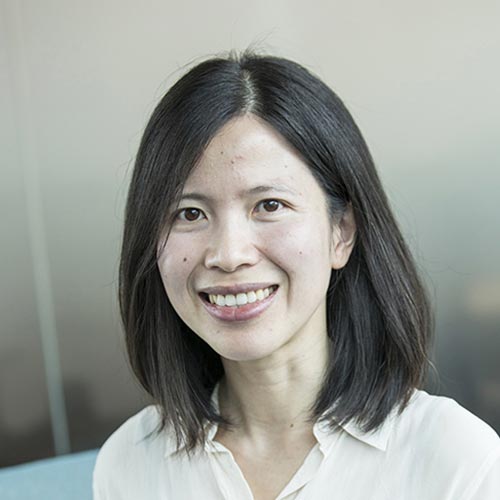
Joyce Yang


Joyce Yang
Joyce Yang is a scientist with extensive experience developing novel technologies at the intersection of CRISPR genome engineering, stem cells, and in situ sequencing. To enable machine-learning based drug discovery, her current work at insitro is focused on building CRISPR perturbation platforms in relevant cellular model systems to produce high-quality data from functional genomic screens and disease modeling.
Joyce earned her B.A. from UC Berkeley majoring in Molecular Cell Biology and minoring in Music. She then pursued her passion for science and earned her Ph.D. from Harvard in Biological & Biomedical Sciences. Her graduate work with Dr. George Church focused on developing a novel in situ RNA sequencing technology as well as CRISPR/Cas9 genome engineering strategies to improve efficiency in human induced pluripotent stem cells (iPSCs). Next, she dived into the exciting world of biotech startups at Synthego, contributing to the growth and commercialization of the new Cell Engineering division as one of the foundational scientists.
Joyce loves to sing and experiment on the piano, traveling, backpacking, taking long walks, and trying all things chewy.
Keywords
All Departments, High Throughput Biology,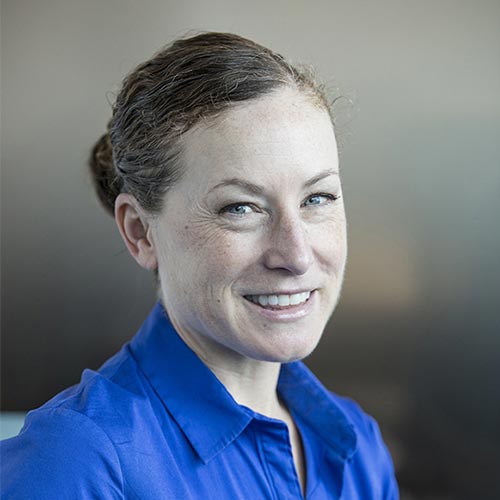
Kelly Haston


Kelly Haston
Kelly Haston is a stem cell biologist with broad experience in human stem cell-based models of development and disease. She is a Sr. Scientist in the disease modeling group helping guide the team as they build biological model systems that will interface with the genetic, data science and machine learning modules of insitro’s unique approach to discover novel human therapeutics.
Kelly was born in Ottawa and grew up in central British Columbia and Toronto, Canada. She did her undergraduate and masters work at the UC Berkeley studying the effects of pesticides on frog gonad development. She then began working in the stem cell field during her Ph.D. with Dr. Renee Rejio Pera at UC San Francisco and Stanford University. Kelly performed postdoctoral positions briefly with Dr. Lee Rubin at Harvard and then with Dr. Steven Finkbeiner at UCSF’s Gladstone Institutes where she focused on building stem cell based models of neurodegeneration. She transitioned to industry in 2017, taking a position with a small start up, Scaled Biolabs, as Lead Scientist where she used the company’s novel discovery platform to optimize the production of many different cell types from human stem cells.
Kelly uses her spare time to be outside as much as possible, mainly trail running or fastpacking. She also loves reading, traveling to new places and attending live music and performances.
Keywords
All Departments, High Throughput Biology,Kirill Novikov

Kirill Novikov
Kirill is an organic chemist with a special interest in design and synthesis of DNA encoded libraries and development of novel chemical transformations of DNA conjugates.
He received his PhD in Mendeleev university in Moscow (Russia) with a focus on stereoselectivity of reactions of indole derivatives. Afterwards, he spent more than 10 years at different projects in medicinal and synthetic chemistry before joining Haystack, the DEL startup, where he was working on chemical aspects of DNA encoded libraries.
In his spare time, Kirill enjoys riding his motorcycle, skiing and other outdoor activities.
Keywords
All Departments, High Throughput Biology,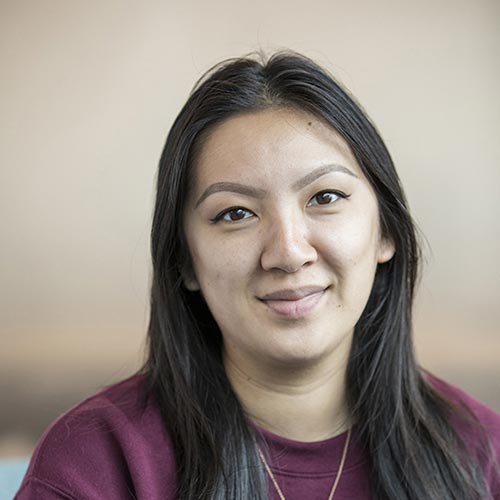
Lauren Lau


Lauren Lau
Lauren is part of the Automation & Process Engineering team. She helps develop and implement lab processes, oversees the purchasing and inventory management of lab supplies, and manages shipping and receiving.
After obtaining her B.S. in Pharmaceutical Chemistry from UC Davis, Lauren decided to explore the operations side of science and worked at Calico Life Sciences, an Alphabet company, as a member of the lab operations team.
In her spare time, Lauren enjoys doing puzzles, playing volleyball, baking, and spending time with her border collie who doesn’t know what sleep is.
Keywords
All Departments, High Throughput Biology,Lauren Schiff

Lauren Schiff
As a Scientist, Lauren’s career extends across cross-functional teams that encompass research biology, engineering, and data science. Her expertise ranges across biological and software technology toolchains including designing experiments, creating novel engineering tools, building induced pluripotent stem cell (iPSC) models at scale and developing large disease-relevant biological datasets using high-throughput automation platforms. Her work focuses on key aspects of iPSC technology including generation, engineering, differentiation, and phenotyping.
Prior to joining insitro, Lauren was a Cellular Biology Research Consultant at Google, in which she developed a high-throughput target-binder assay. Additionally, she was the biological lead focused on developing diagnostic tools assisted by machine learning.
Lauren received her B.S. from the University of Michigan followed by her M.S. from the University of Sydney in the field of human genetics. Lauren received her Ph.D. in biomedical sciences from the Icahn School of Medicine at Mount Sinai in the lab of Dr. Timothy Blenkinsop in which she focused on stem cell biology and human disease models.
In her free time, Lauren enjoys hiking with her dog, Penny and trying out any and every new ramen restaurant.
Keywords
All Departments, High Throughput Biology,Lin Gan

Lin Gan
Lin Gan is a cell biologist with extensive experience in using cell-based high-throughput screens, functional genomics and imaging to understand signal transduction and identify novel therapeutic targets. As a Sr. Scientist in Arrayed Screening, Lin helps to build and operate a high-throughput screening platform and collaborates closely with the machine learning, process engineering, and genetic and disease modeling teams to generate high-quality datasets for model building.
Lin received a B.A. in Biochemical Sciences from Harvard University and decided to pursue basic science research after working on C. elegans aging in Dr. Gary Ruvkun’s lab. She did her graduate work with Dr. Tobias Meyer at Stanford University, where she conducted a microscopy-based, genome-wide siRNA screen that led to the discovery of a family of novel GPCRs that regulate mTOR. Lin gained drug discovery experience developing therapeutics for selective mTORC1 inhibition as a SPARK scholar during her postdoctoral studies at Stanford.
Prior to joining insitro, Lin worked at Rigel Pharmaceuticals focusing on small molecule screens and mechanism of action studies for immunological diseases.
In her free time, she enjoys outdoor activities, spending time with her family, and dancing.
Keywords
All Departments, High Throughput Biology,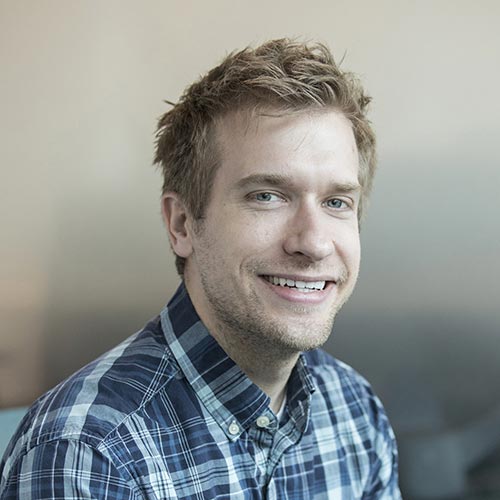
Max Salick


Max Salick
As Disease Modeling Scientist, Max is focused on using pluripotent stem cells, CRISPR, and a range of differentiation and transcriptomics approaches to model human diseases in in vitro platforms. Max and his team will model devastating human diseases using the relevant cell types, and will produce high-throughput / high-quality imaging and transcriptomic datasets for insitro’s machine learning platform to mine for phenotypes.
Max is an engineer by training, gaining a B.S. in Engineering Mechanics and Astronautics and a Ph.D. from the Materials Science Program of the University of Wisconsin – Madison. By combining dry lab engineering with wet lab disease modeling, Max has frequently used the newest technologies to gain insights into the mechanisms by which various genetic diseases affect human health. Max spent his time in graduate school developing micropatterned differentiation techniques and computational analysis tools to improve stem-cell-based heart modeling methods. Prior to joining insitro, Max spent 4 years as a postdoc in the Novartis Neuroscience department, where he developed single cell characterization platforms to discover disease mechanisms of tuberous sclerosis, uncovered novel mechanisms of disease progression in certain dementias, and conducted genome-wide screens to elucidate potential Zika virus receptors.
Max’s free time is spent with his border collie, Coda, along with playing piano/guitar, and poorly-but-enthusiastically playing various sports.
Selected Publications:
Genetic ablation of AXL does not protect human neural progenitor cells and cerebral organoids from Zika virus infection
https://www.ncbi.nlm.nih.gov/pubmed/27912091Micropattern width dependent sarcomere development in human ESC-derived cardiomyocytes
https://www.ncbi.nlm.nih.gov/pubmed/24582552p53 inhibits CRISPR-Cas9 engineering in human pluripotent stem cells
https://www.ncbi.nlm.nih.gov/pubmed/29892062/Google scholar
View articlesKeywords
All Departments, High Throughput Biology,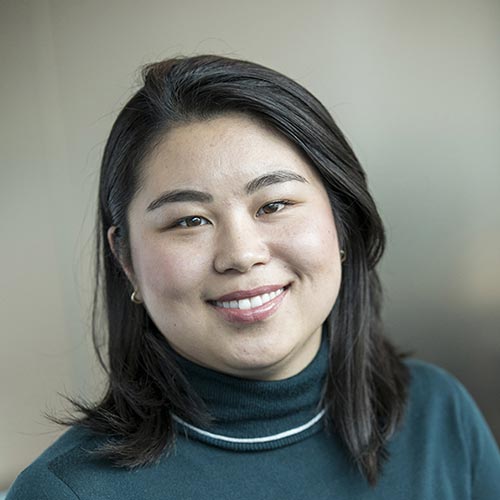
Meiliang Pan


Meiliang Pan
Mei is a Research Associate in High-Throughput Biology and her work primarily focuses on differentiate human pluripotent stem cell (iPSC) into desired cell types for in vitro human disease modeling and generate datasets for insitro’s machine learning platform.
Prior to joining insitro, Mei was a CIRM (California Institute for Regenerative Medicine) Scholar at the Gladstone Institute working on iPSC neurodegenerative diseases modeling. Mei obtained her B.Sc. in Biology with an emphasis on cellular/molecular biology and a minor in chemistry from Humboldt State University.
In her spare time, Mei enjoys photography, visit art exhibits, live music and performances, reading, hiking, exploring new places and try different cuisines.
Keywords
All Departments, High Throughput Biology,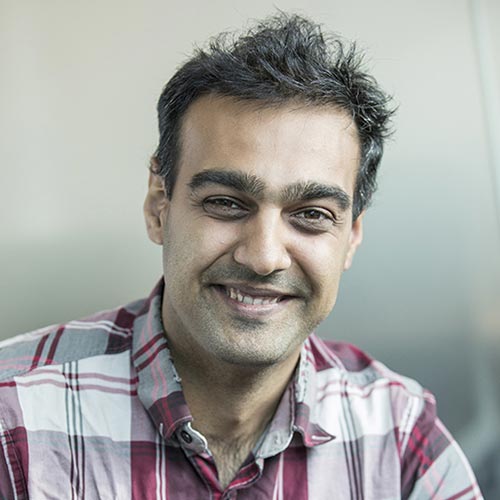
Nav Ranu


Nav Ranu
Nav has extensive experience working at the intersection of next generation sequencing, microfluidics, and single cell technologies. His focus at insitro involves designing and analyzing high throughput sequencing experiments in order to support indication specific drug discovery pipelines and the functional genomics team.
Nav acquired his undergraduate degree in Chemical Engineering at UC Berkeley followed by a PhD in Biological Engineering at MIT. His graduate research focused on developing novel targeted sequencing technologies to make single cell genomic experimental more feasible and to understand patterns of DNA damage. While completing his PhD, Nav also served as a Communication Fellow at the Broad Institute where he mentored scientists through the process of written, verbal, and visual presentations of science.
In his free time, Nav is an avid proponent of indoor and outdoor sports ranging from lounging on a couch to climbing up and skiing down mountains.
Keywords
All Departments, High Throughput Biology,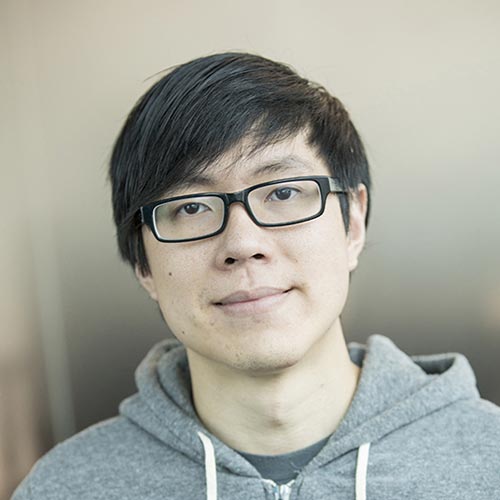
Owen Chen


Owen Chen
Owen spent four and a half years as a member of Dr. Jonathan Weissman’s Lab at UCSF, where he supported the development RNAi-based and CRISPR-based mammalian genome-scale functional genomics screening platforms, successfully identifying new targets for grants and publications. He cloned and maintained ultracomplex shRNA/sgRNA screening libraries as well as generated stable cell lines with gene repression or activation. Additionally, he conducted numerous functional genomic screens in cancer cell lines challenged by various toxins, drugs, and chemicals.
After his time at UCSF, he spent two and a half years at Driver, where he developed NGS assays and validated tumor-normal and cfDNA manual assays under CAP and CLIA guidelines. He also had fun acquiring a new set of skills in converting these manual assays into fully automated processes.
Keywords
All Departments, High Throughput Biology,
Pooja Prasad


Pooja Prasad
Pooja is an Associate Scientist for the Process Engineering team and she is working on developing and scaling various genomics assays and QC protocols.
Prior to joining insitro, Pooja worked on developing a robust, high-throughput NGS library preparation protocol for engineered strain genotyping at a biotech startup. Before then she was a graduate student researcher at the Buck Institute for Research on Aging, where she worked on developing a protocol for generating three-dimensional retinal organoids using mouse embryonic stem cells. Pooja has a background in molecular biology and obtained her B.S. and M.S. from Dominican University of California.
In her free time, Pooja enjoys cooking, traveling, and spending time with her dog.
Keywords
All Departments, High Throughput Biology,Prateek Chandra

Prateek Chandra
Prateek grew up and spent most of his time in India before coming to the United States for his masters in biomedical engineering from New Jersey Institute of Technology.
Before his masters he worked as a software developer at an IT firm in India. He has a mix of different backgrounds including electronics, biomedical and computer science. His research interests include stem cells, induced pluripotent stem cells, stem cell derived cardiomyocytes and study integration of biomedical and computer science.
In his spare time, he enjoys nature and spending time outdoors, loves to ride motorcycles and go on road trips and recently developed an interest towards baking and cooking.
Keywords
High Throughput Biology,Roey Baror

Roey Baror
Roey Baror is a neuroscientist and glial biologist with expertise in developing primary adult mammalian cell cultures and transcriptomics analysis. As a Scientist in the Disease Modeling group at insitro, Roey focuses on building robust in vitro platforms to reliably model human diseases.
Roey earned his B.Sc. in Biology and Psychology (neuroscience pathway) at the University of Tel Aviv (Israel). He then worked at the Berenson-Allen Center for Noninvasive Brain Stimulation (Boston, MA) where he used TMS (Transcranial Magnetic Stimulation) as an experimental treatment for Alzheimer’s disease.
Roey received his PhD in Clinical Neurosciences from the University of Cambridge (UK). His research focused on methods to enhance regeneration of myelin in the central nervous system, with emphasis on the effects of aging. His work uncovered new mechanisms by which aging processes alter the activity of stem cells and immune cells in the brain, allowing the development of new therapeutic interventions. Following his PhD, he continued to a postdoc at UCSF (San Francisco, CA), where he studied metabolic pathways in adult CNS stem cells in search for new ways to promote the activation of these cells in pathological settings and promote regeneration of myelin.
In his free time, Roey enjoys rock climbing, hiking, snowboarding, cooking and discovering new craft beers and breweries.
Selected Publications:
Metformin Restores CNS Remyelination Capacity by Rejuvenating Aged Stem Cells
https://www.sciencedirect.com/science/article/pii/S1934590919303509Transforming growth factor‐beta renders ageing microglia inhibitory to oligodendrocyte generation by CNS progenitors
https://onlinelibrary.wiley.com/doi/full/10.1002/glia.23612Keywords
All Departments, High Throughput Biology,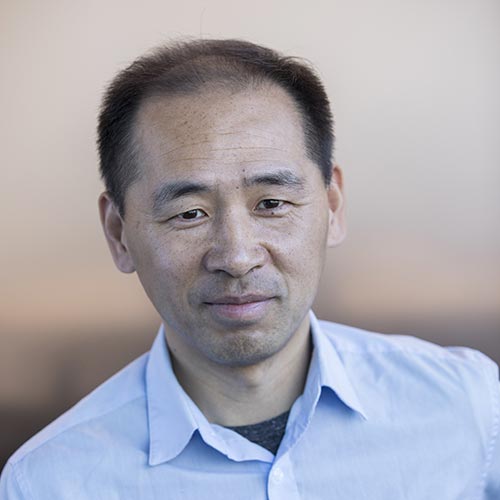
Shengjiang Tu


Shengjiang Tu
Shengjiang is a biochemist with interests in stem cell biology, transcription regulation, epigenetics, and CRISPR technologies. At insitro, he works on the functional genomics and phenotyping team to help build the CRISPR-based genomic discovery platform, focusing on developing novel CRISPR screening technologies and assays.
As a chemist by training, Shengjiang obtained his Ph.D. in biochemistry at Ohio State University. While working in Dr. Ming-Daw Tsai’s lab, his graduate studies focused on de novo chromatin modifying enzyme discovery and enzyme targeting on the genome. During that process, he appreciated the power of chemistry, yeast genetics, and proteomics. Afterwards Shengjiang conducted his postdoc with Dr. Danny Reinberg at Howard Hughes Medical Institute / New York University School of Medicine on chromatin biology, where he combined proteomics, genomics, as well as CRISPR knock-in, knock-out, and genetic screen techniques in cells and mice to tackle exciting stem cell and germ cell biology questions. In 2017, he joined a regenerative medicine startup Surrozen, where he worked on adult stem cells differentiation and function assays related to Wnt signaling, as well as bi-specific antibody engineering.
In his spare time, Shengjiang enjoys hiking with his family, watching football with his son and following NFL and NCAA football news.
Keywords
All Departments, High Throughput Biology,

